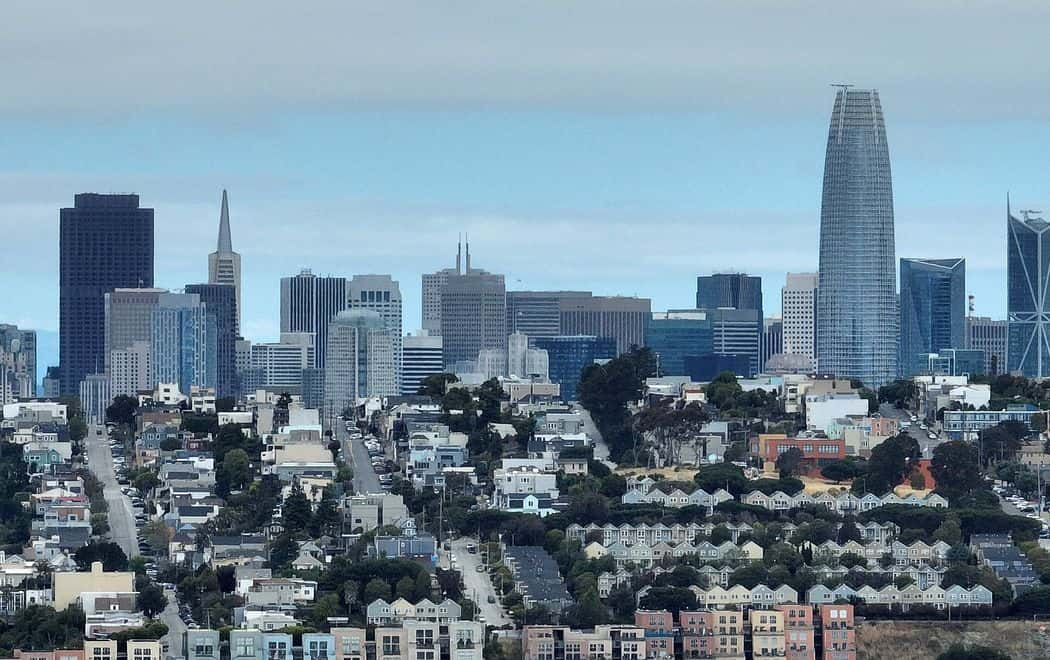According to a recent client note from Moody’s Analytics, San Francisco’s commercial real estate market continues to face significant risks, potentially leading to a cascade effect of property defaults. The spotlight is now on the city’s office properties, which are grappling with record-high vacancy rates and distressing sales, as owners of the largest mall and two major hotels recently walked away from their mortgage obligations.

Moody’s Analytics Is Concerns San Francisco’s Critical Mass
Moody’s Analytics, led by Thomas LaSalvia, head of commercial real estate economics, expressed concerns about San Francisco’s critical mass, stating that the city is in a precarious situation. They questioned how much longer the city can sustain its necessary critical mass before losing it entirely.
San Francisco has experienced one of the slowest recoveries from the pandemic, largely due to factors such as remote work, street-safety issues, and other significant challenges. Despite the optimism surrounding the potential for an A.I. boom to boost the city’s prospects, the recovery has been lackluster. While the S&P 500 index and Nasdaq Composite Index have seen gains this year, thanks to a rally in big tech shares, San Francisco faces immediate concerns related to maturing debt and scarce credit availability. Borrowing costs have significantly increased compared to a year ago, creating additional financial pressure for property owners.
In the commercial mortgage-backed securities market, San Francisco ranks fourth in terms of outstanding loan balances coming due within the next year. The city’s office vacancy rate stands at a staggering 29.4% as of the first quarter, according to CBRE data. With maturing office loans, there is a stark reality of refinancing risks and expiring leases that could further strain the already low property income-to-debt ratios.
READ ALSO: Mental Incapacity Defense Unveiled in Trial of Pittsburgh Synagogue Shooter
San Francisco Faces Challenges BeyondOffice Buildings, Including Shopping Center Surrender
However, the challenges faced by San Francisco extend beyond office buildings. Westfield recently announced that it would surrender its namesake shopping center in the city due to a significant decline in foot traffic and challenging operating conditions. Moreover, the owners of Hilton San Francisco Union Square and Parc 55 San Francisco have stopped making payments on a $725 million loan, citing concerns over high office vacancies, street conditions, and a potential dampening of business and leisure activity in the city for the foreseeable future.
Fitch Ratings reveals that San Francisco’s landlords have accumulated over $22 billion in property loans through the commercial mortgage-backed securities market in recent years. Approximately half of these loans are tied to office buildings, positioning San Francisco as one of the prominent players in this sector, trailing only New York and Los Angeles in terms of market size.
In summary, San Francisco’s commercial real estate market is encountering significant challenges, with mounting debt, distressed sales, and high vacancy rates putting the city’s critical mass at risk. The road to recovery remains uncertain as property owners face refinancing risks, expiring leases, and limited credit availability. The impact extends beyond office properties, affecting shopping centers and hotels as well. San Francisco’s commercial real estate sector holds substantial debt, cementing its position as one of the largest markets in the industry.
READ ALSO: Sen. Marco Rubio Introduces Health SNAP Act to Restrict Assistance for Junk Food




